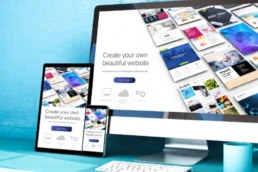Personalization isn’t just a trend; it’s a necessity. As online shoppers grow to expect tailored experiences, Shopify store owners are turning to AI personalization to boost engagement, retention, and conversions. Whether you’re a solo entrepreneur or managing a high-volume store, understanding how Shopify AI solutions work can help you skyrocket your average order value (AOV) and drive sustainable growth.
What Is AI Personalization in eCommerce?
AI personalization refers to the use of artificial intelligence to deliver customized shopping experiences based on user data, behaviors, preferences, and patterns. For Shopify stores, this might include showing tailored product recommendations, predictive search suggestions, targeted promotions, personalized emails, dynamic pricing, or even chatbot-driven shopping assistance.
Unlike traditional static shopping experiences, AI creates fluid, context-aware environments that feel personal and intuitive leading to better customer experiences and, ultimately, more sales.
Why Personalization Matters More Than Ever
Before diving into Shopify-specific tools, let’s understand why personalization is such a critical factor:
- 80% of shoppers are more likely to buy from brands that offer personalized experiences.
- 44% of customers become repeat buyers after a personalized shopping experience.
- Increased AOV: Personalized product suggestions can raise average cart sizes by up to 30%.
With numbers like these, it’s clear: AI personalization is no longer optional—it’s essential for Shopify store success.
Use Cases of AI Personalization in Shopify Stores
Let’s explore the most impactful ways AI Shopify store builders and integrations are helping store owners deliver better experiences and drive more conversions.
1. Personalized Product Recommendations
This is one of the most effective forms of AI personalization. By analyzing browsing history, purchase behavior, and similar shopper profiles, Shopify AI tools can display tailored product suggestions such as:
- “You might also like” on product pages
- “Customers who bought this also bought…” in the cart
- Trending items in the same category
Tools like LimeSpot, Nosto, and Shopify Magic leverage machine learning to boost cross-sells and upsells using this technique.
Conversion Boost: Customers are more likely to add additional products when the recommendations are relevant—leading to higher AOV and lower bounce rates.
2. AI-Powered Email Campaigns
Email is still a powerful driver of revenue, but generic blasts no longer cut it. AI personalization tools help Shopify store owners craft behavior-based, dynamic email campaigns.
Examples include:
- Abandoned cart reminders with personalized product images
- Emails with product suggestions based on recent browsing
- Birthday or loyalty-based offers tailored to the user’s shopping style
Platforms like Klaviyo and Omnisend integrate with Shopify and use AI to personalize timing, messaging, and content.
Conversion Boost: Personalized emails generate 6x higher transaction rates than non-personalized ones.
3. Smart Search & Predictive Filtering
Standard site search can frustrate users when they can’t find what they’re looking for. AI-powered search engines like Searchanise or Doofinder transform this process by:
- Predicting what users are typing
- Auto-correcting typos
- Suggesting products before the user finishes typing
- Adapting results to user behavior
Conversion Boost: Shoppers who use site search are 2–3x more likely to convert. AI makes sure that the experience is smooth and rewarding.
4. Dynamic Pricing & Discounts
AI doesn’t just help with product discovery, it can also automate pricing and discounting strategies. Shopify-compatible apps like Prisync or Intelligems use AI to:
- Adjust prices based on competitor activity
- Offer real-time personalized discounts to users
- Test pricing sensitivity through A/B testing
Conversion Boost: Timely discounts based on behavior or urgency (like “limited time offers” triggered by exit intent) can prevent drop-offs and close sales faster.
5. AI Chatbots & Virtual Shopping Assistants
AI-powered chatbots go beyond basic support, they act like personalized shopping assistants. Tools like Tidio, Heyday, and Re: amaze use NLP (Natural Language Processing) to:
- Answer customer queries in real time
- Recommend products based on customer interests
- Guide shoppers through the decision-making process
Conversion Boost: 35% of consumers are more likely to buy after chatting with a bot. The 24/7 availability of these assistants ensures no sale opportunity is lost.
6. Personalized On-Site Experiences
Beyond recommendations and search, AI can personalize the entire layout or content experience of a Shopify store. For example:
- Custom homepages based on customer segments (new vs returning)
- Product banners that adjust based on gender or preferences
- Location-based shipping notices and prices
Apps like RightMessage or ConvertFlow help Shopify users create segmented experiences using AI logic.
Conversion Boost: Relevant landing experiences reduce bounce rates and increase time-on-site, directly contributing to higher sales.
How to Get Started With AI Personalization on Shopify
Ready to implement AI personalization? Here’s how to begin:
Step 1: Define Personalization Goals
Ask yourself:
- Do you want to increase AOV?
- Do you want to improve retention and loyalty?
- Are you focusing on first-time buyers or returning customers?
Your goal will guide your AI strategy and app choices.
Step 2: Choose the Right Tools
Here are some top-rated Shopify AI tools to consider:
| Tool | Function |
| Shopify Magic | Built-in AI for writing, auto-responses, and product descriptions |
| LimeSpot | Product recommendations and personalized bundles |
| Klaviyo | Personalized email flows and SMS marketing |
| Nosto | Full-suite personalization platform for product, content, and recommendations |
| Tidio AI | Chatbot for Shopify that drives engagement and conversions |
| Searchanise | Predictive search engine for Shopify stores |
Step 3: Analyze Customer Data
Leverage customer data to build intelligent segments based on:
- Browsing and purchase behavior
- Device or location
- Referral source
- Purchase frequency and cart size
AI tools use this data to deliver the right message, to the right person, at the right time.
Step 4: Test and Optimize
Don’t expect instant results. Use A/B testing tools built into many AI apps to test:
- Which product recommendations convert best
- Which email sequences yield higher open rates
- Which chatbot flows increase cart completion
Optimization is an ongoing process and AI gets smarter with every interaction.
The Future of Shopify AI: Beyond Personalization
While personalization is a major driver today, the future of AI in Shopify stores will be even more powerful. We’re seeing developments in:
- AI-powered image and video generation for product visuals
- Voice search optimization and conversational commerce
- Automated inventory and fulfillment predictions
- AI-generated landing pages using tools like the next-gen AI Shopify store builder
These advancements mean that AI won’t just personalize your store it will eventually help build and run it with minimal manual input.
If you’re running a Shopify store and you’re not using AI personalization, you’re already behind.
Consumers expect fast, intelligent, and highly relevant shopping experiences—and Shopify AI tools are here to deliver just that. From smarter product recommendations and predictive search to dynamic pricing and email campaigns, AI lets you tailor every touchpoint of the customer journey.
By integrating personalization tools and leveraging an AI Shopify store builder, you don’t just enhance user experience—you increase conversions, loyalty, and average order value.
Start small, test constantly, and scale with data-backed confidence. With AI personalization at your side, your Shopify store can go from good to unmatchable.
Simran Singh
Simran is an SEO Specialist and Digital Growth Strategist with 3+ years of experience helping brands strengthen their search presence and scale organic results. She specializes in data-backed SEO strategies that improve keyword visibility, increase qualified traffic, and enhance user engagement across websites and content hubs. When she’s not working on SEO, Simran enjoys gaming, mountain trekking, and exploring new digital trends.



